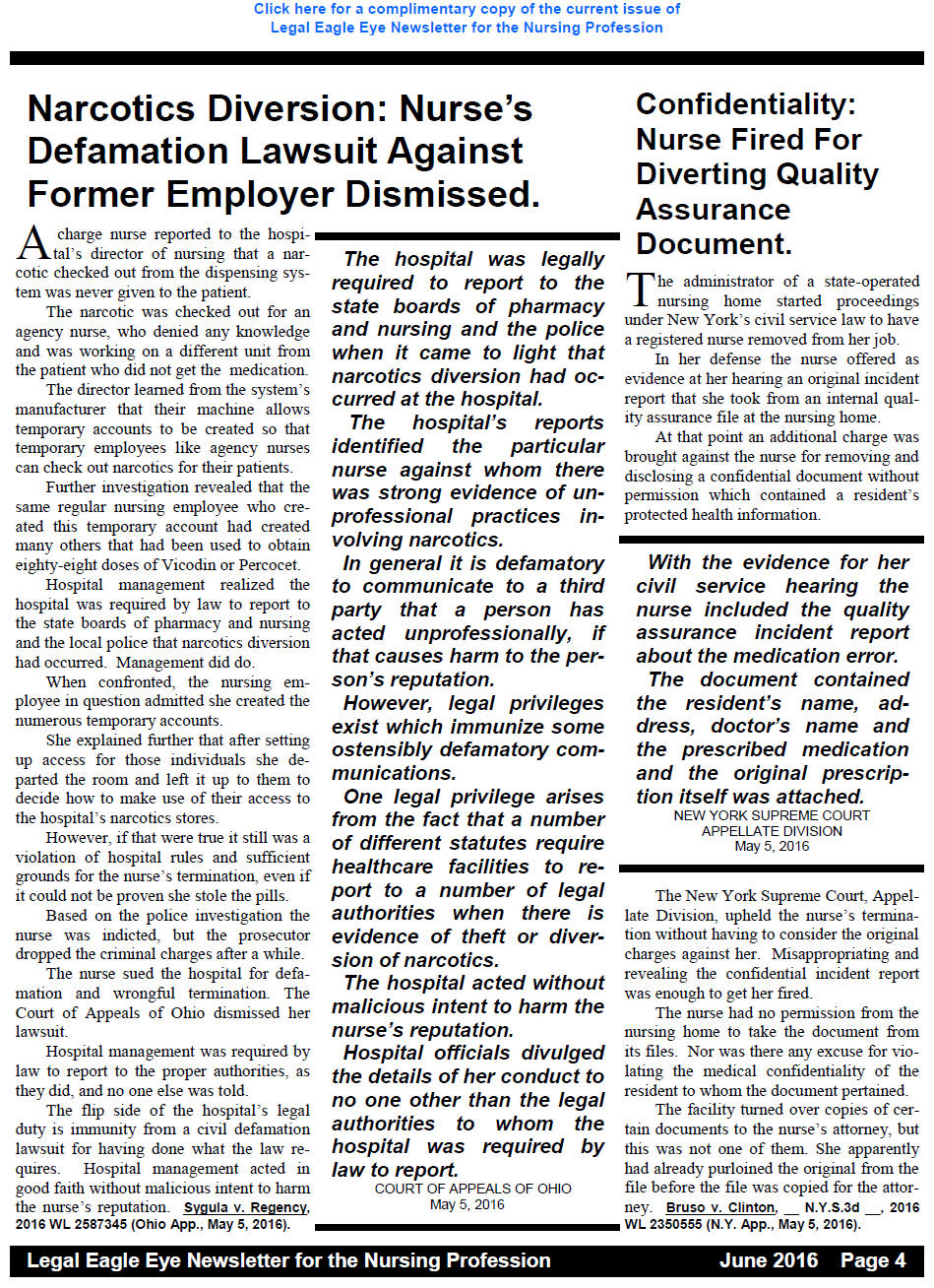
A healthcare employer is required by law to report a nurse to the Board of Nursing when the employer knows or has reason to believe that the nurse has engaged in conduct that is grounds for disciplinary action by the Board. The tradeoff to the employer is legal immunity from a civil lawsuit by the employee over a statement in connection with such a mandatory report, even if it proves to be untrue.
Defamation involves a false statement of fact with a derogatory message that damaged the victim's reputation when it was communicated to a third party.
In this case the nurse did not furnish the Court with evidence as to exactly what was said or written about her to the Board and by whom at the hospital. Thus the Court cannot rule that the statement was false. Another compelling reason for dismissal of the nurse's defamation lawsuit is that, barring evidence of actual malice, any mandatory report to a governmental agency is covered by a legal privilege that provides immunity from a civil lawsuit. COURT OF APPEALS OF OHIO March 30, 2018
One particular oncology nurse's results in a random pharmacy audit of narcotics were problematic compared to those of her peers. More than twenty instances were found in which the nurse either failed to document administration of narcotics she had withdrawn or withdrew more narcotic medication than called for by the patient's physician's orders. The nurse was called in for a meeting with her supervisor but was unable to explain the discrepancies. She was suspended pending further investigation and then was terminated two weeks later. Her supervisor informed her she was being terminated for failure to follow proper protocols for medication admini-tration and for theft of narcotics.
The nurse sued her former employer for wrongful termination and for defamation over the hospital's human resources department's report to the state Board of Nursing.
The nurse did not have an employment contract with the hospital and was not covered by a union collective bargaining agreement. Thus she was a common law employee at will who could be terminated at any time without cause.
As to defamation, the Court pointed out that state law expressly requires a healthcare employer to report a licensed employee to the licensing agency when the employer knows or has reason to believe the employee engaged in conduct that would be grounds for disciplinary action. The employer's tradeoff for the employer's mandatory duty to report is legal immunity from civil lawsuits by employees or former employees whom the employer reported, even if what was reported turns out to have been untrue. An exception exists to the employer's legal immunity when the employer was motivated by actual malice in reporting an employee. Actual malice means a report was made that was known to be false or was made with a reckless disregard for the truth. Johnson v. Hospital, 2018 WL 1611417 (Ohio App., March 30, 2018).